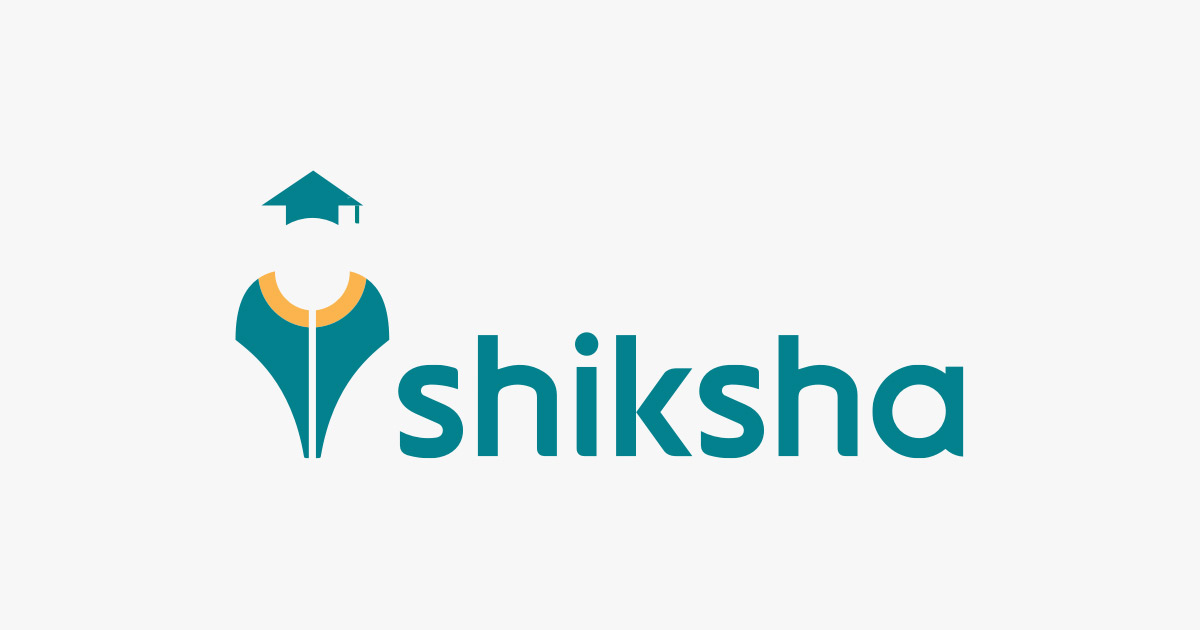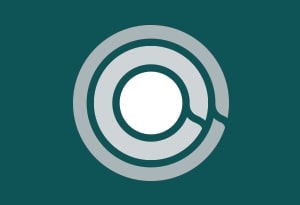
All About Commerce - Courses, Subjects, Admission, Eligibility, Scope & Careers
What is Commerce?
Commerce is a field for students who have an interest in financial information/transactions, trading of economic value, etc. Students often consider taking up Commerce after completing Class 12. Students who are looking forward to pursuing a career in Commerce have a wide range of choices before them.
Candidates can pursue the Commerce course at the undergraduate (UG), postgraduate (PG), diploma levels as well as at the doctoral level. UG level Commerce courses offered to aspirants include BCom, BBA, CA, CS, BBA LLB, BBM, BSc, etc. At the PG level, popular Commerce programs are MCom, MBA, MPhil, MSc, etc. Generally speaking, UG courses in Commerce are of three years duration whereas PG programmes are of two years duration.
Among the Commerce courses, students can consider choosing specialisations such as Accounting and Finance, Banking and Finance, Accounting and Taxation, Actuarial Science, Business Administration, Applied Economics, E-Commerce, Financial Accounting, Banking and Insurance, Human Resources, Entrepreneurship, Accounting and Auditing, etc.
Commerce Eligibility Criteria
Check out the eligibility criteria for pursuing Commerce below:
Graduation:
Candidates can pursue a UG degree in Commerce if they have completed their Class 12 or its equivalent level of education in the relevant stream from a recognised board
Candidates who have studied subjects such as Accounts, Mathematics and Economics, etc. are also eligible to apply
- Candidates in Class 12 and awaiting the results can also apply
Post-Graduation:
To secure admission in the PG level Commerce course, candidates should have completed their graduation degree in Commerce stream from a recognised college/university
Students must have secured a minimum of 50% aggregate or equivalent in graduation (it may vary from college to college)
Top Commerce Entrance Exams
Given below is the list of top Commerce entrance exams scores that are valid for admission to various institutes and universities:
List of Commerce Exams
Check Out: List of all Commerce exams
Commerce Courses
Students can pursue Commerce courses at UG, PG and Ph.D. levels. The regular Bachelor’s and Master’s degree courses are available full-time as well as part-time. Certificate courses such as CA, CS, CFA are available in part-time mode and are very popular Commerce courses in India.
List of Commerce Courses in India
MA Economics
MSc Economics
BA Economics
Commerce: Skillsets Required
Candidates who want to make a mark in the field of Commerce should be a quick thinker and good with numbers. Some key skills that an individual should possess so as to be successful in the Commerce industry are:
List of Skillsets Required for CommerceQuick ThinkerNumeracy skillsGood Communication skillsProblem-solving abilityLeadership skillsCritical and analytical thinking ConfidenceMulti-taskingAdaptabilityCommittedTime managementStrong negotiation skills
Commerce Subjects and Syllabus
Check out the Commerce syllabus for graduation and post-graduation programmes in the tables below:
Commerce UG Course Syllabus
Refer to the table below to know the Commerce syllabus at the graduation level:
Course
Subjects
BCom
Financial Accounting
Business Organization and Management
Language: English/Hindi/Modern Indian Language
Generic elective courses like Macro-economics, Foreign exchange markets, etc.
Company Law
Indirect Tax Laws
Auditing and Corporate Governance
Fundamentals of Financial Management
BCom in Finance and Accountancy
Financial Accounting
Business Law
Business Economics
Language: English/Hindi/Modern Indian Language
Business Management
Human Resource Management
Management Accounting
Principles of Macroeconomics
Organizational Behavior
IT in Business
Financial Management
Income Tax
Corporate Law
Auditing
Strategic Cost Management
Indirect Taxation
Strategic Management, Ethics and Corporate Governance
International Taxation and Transfer Pricing
BCom (H)
Environmental Studies
Financial Accounting
Business Laws
Business Communication (Language)
Corporate Accounting
Corporate Laws
Human Resource Management
Income Tax Law and Practice
Management Principles and Applications
Cost Accounting
Business Mathematics
Computer Applications in Business
Principles of Marketing
Fundamentals of Financial Management
Auditing and Corporate Governance
Indirect Tax Laws
BBA
Introduction to Business Studies
Business Accounting
Principles of Microeconomics
Business Communication
Business Mathematics
Business Entrepreneurship
Elements of IT
Organizational Behavior
Management Accounting
Macroeconomic Theory
Corporate Governance and Ethics
Human Resource Management
Business Statistics
Fundamentals of Marketing
Integrated Disaster Management
Operations Research
Business Laws
Foreign Language
Liberal Arts
Fundamentals of Quality Management
Research Methodology
Basics of Management Information Systems
BCom in Banking and Insurance
Auditing
Business Communication
Business Ethics and Corporate Governance
Business Statistics
Business Tax Procedures and Management
Central Banking
Corporate Laws and Law Governing Capital Markets
Cost Accounting of Banking and Insurance
Customer Relationship Management
Equity Debt
Entrepreneurship Management
Environmental Studies
Financial Accounting
Financial Management
Financial Services Management
Forex Management
Human Resource Management
Innovations in Banking and Insurance
International Banking Finance
International Business
Introduction to Computers and IT
Management Accounting
Organizational Behavior
Quantitative Methods
Strategic Management
Universal Banking
BCom in Accounting and Taxation
Financial Accounting
Cost Accounting
Business Mathematics
Law of Contract
Microeconomics
E-Commerce
Business Statistics
Corporate Accounting
Business Law
Operations Research
Income Tax Law and Practices
Business Organization
Corporate Law
Financial Management
Advanced Business Statistics
Advanced Accounting
Business Management
Auditing
Retail Management
Macroeconomics
Indirect Tax Laws
Tax Planning
Management Accounting
Monetary Economics
Business Economics
BA in Business Economics
Economics of Firm Strategy
Economics of Money and Banking
Managerial Economics
Basic Financial Accounting
Entrepreneurial Development
Statistics for Business Analysis
Marketing
Macroeconomics
Fiscal Economics
International Economics
Indian Economy and Economic Reforms
Human Resource Development
Financial Markets
Commerce PG Course Syllabus
The syllabus for PG level Commerce courses is mentioned below:
Course
Subjects
MCom (Master of Commerce)
Business Statistics
Managerial Economics
Managerial Accounting
Financial Planning
Organizational Theory and Behavior
Quantitative Techniques for Business
Financial Management and Policy
Marketing Management
Legal Aspects of Business
International Business
Global Strategic Management
Entrepreneurship
Corporate Governance, Ethics and Social Responsibility of Business
Business Research
MA (Hons) in Economics
Economic History of India
Principles of Economics
Mathematics for Economic Analysis
Sociology
English
Indian Economy Since Independence: Problems and Prospects
Micro Economics
Development Economics
Accounting and Financial Management
Statistics for Economic Analysis
Data Base of the India Economy and Computer Analysis of Data
Macro Economics
Economics of Agriculture
Econometrics
History of Economic Thought
Basics of Financial Markets
Economics of Industry
Optimization Techniques and Game Theory
Human Resource Development
Economics of Public Finance
Environmental Economics
International Economics
MBA
Organizational Behavior
Economics
Marketing Management
Information Technology
Quantitative Techniques in Management
Business Communication
Behavioral Science
Foreign Business Language
Human Resource Management
Accounting and Finance
Research Methodology
Productions and Operations Management
Legal Aspects of Business
Company Report
Business Environment and Strategic Management
Management in Action – Social, Economic and Ethical Issues
MBA in Banking and Finance
Principles of Management and Organizational Behavior
Managerial Economics
Accounting and Finance for Managers
Marketing Management
Human Resource Management
Quantitative Techniques for Management
Research Methods for Management
Corporate Communication
Operations Management
Financial Institutions and Services
Management Control Systems
Banking and Insurance Marketing
Management of Banking and Insurance Companies
Commercial Banking and Role of RBI
Mutual Fund Management
Merchant Banking
Business Environment and Ethics
Strategic Management
MCom in Accounting and Finance
Accounting Theory and Standards
Advanced Corporate Accounting
Advanced Financial Accounting
Applied Cost Accounting
Business Research Methods
Computerized Accounting with Tally
Communicative Skills
Cost Control Techniques
Costing Methods
Direct Taxes
e-Commerce
Enterprise Resource Planning
Financial Accounting
Financial Markets and Institutions
Financial Management
Financial Services
Human Resource Management
Indirect Taxation
Insurance and Risk Management
International Financial Management
Investment & Portfolio Management
Management Accounting
Management Information Systems
Management of Financial Services
Managerial Finance
Modern Banking
Principles of Accounting
Principles of Insurance Management
Principles of Modern Banking
Principles of Personal Finance
Quantitative Techniques for Finance
Security Analysis and Portfolio Management
Top Commerce Specialisations
The students who wish to pursue Commerce as their field of study and career path have the opportunity to choose various specialisations. Check out the table below to know the Commerce specialisations offered by various Commerce colleges in India:
List of Commerce SpecialisationsAccounting and FinanceBanking and FinanceBanking and InsuranceAccounting and TaxationActuarial ScienceBusiness AdministrationApplied EconomicsFinancial AccountingHuman ResourcesEntrepreneurshipAuditingInvestment Banking
Top Commerce Colleges in India
Check out the table below to know the top Commerce colleges in India:
List of Top Commerce Institute/University in IndiaShri Ram College of Commerce (SRCC)St. Joseph's College of CommerceHindu CollegeDaulat Ram CollegeLady Sri Ram College for WomenStella Maris CollegeMadras Christian CollegeKJ Somaiya College of Arts and CommerceChrist UniversityMount Caramel CollegeNarsee Monjee College of Commerce & Economics Goenka College of Commerce and Business AdministrationMithibai College of ArtsSymbiosis College of Arts and Commerce
Commerce Jobs, Career Scope and Top Recruiters
If students want to make a career in the field of Commerce, there are ample career opportunities available for the students. Depending on the course selected by candidates they can pursue different job profiles. Herein some popular job profiles as per the course:
Graduates: After completing UG level course under Commerce, the candidates can find various jobs at entry or junior level in Accounting, Commerce, Banking and Finance and related fields such as Junior Accountant, HR Manager, Business Executive, Accounts Executive, Operations Management, Data Analyst, Research and Development Manager, Information Systems Manager, Project Manager, etc.
Post Graduates: After completing PG level courses under Commerce, the candidates can seek employment in the BFSI Sector, opt for teaching or lecturer-ship or go for research. There are various job options for PG degree holders of Commerce in the private, public as well as government sectors. Nationalized banks, Railways, Income Tax and other such government departments are good options who aim for a secure and prosperous career. The candidates can get the job of Senior Accountant, Cashier/Teller, Bank Manager, Marketing Manager, Investment Banker, Wealth Manager, etc.
Commerce Job Profiles
Check out the table below to know the job opportunities available for Commerce students along with the average salary in India:
Job ProfileAverage Salary (Per annum)*Junior AccountantRs 1.85 lakhBusiness ExecutiveRs 2.99 lakhHR ExecutiveRs 3.75 lakhAccounts ExecutiveRs 2.70 lakhData AnalystRs 4.36 lakhResearch and Development ManagerRs 11.73 lakhProject ManagerRs 13 lakhWealth ManagerRs 9.09 lakhBank ManagerRs 7.89 lakhSenior AccountantRs 4.06 lakhCashierRs 2 lakhMarketing ManagerRs 10 lakhInvestment BankerRs 9.42 lakhFinance ManagerRs 9.6 lakh
*the salary data is taken from payscale.com
Commerce Top Recruiters
Commerce graduates have vast career options. After completing their course, aspirants can work in Accounting, Commerce, Banking and Finance and related fields. They also have an option to prepare for the appointment in the government sector as well as the public sector. Herein the recruiters that hire Commerce graduates:
Commerce Top Recruiters
SBI
Deloitte
ICICI Bank
KPMG
HDFC
TFC
RBS
Tata Consultancy Services (TCS)
Induslnd Bank
Microsoft
Ernest and Young
HCL Technologies
Punjab National Bank
Hewlett-Packard
Citibank
IBM
HSBC
Reliance
Important FAQs Related to Commerce
Q. What are the career options after pursuing Commerce?
A. A field like Commerce offers a plethora of job opportunities. Students choosing Commerce as their field of study can opt for careers such as Business Executive, Accountant, HR Manager, Data Analyst, Marketing Manager, Investment Banker, Wealth Manager, Project Manager, Research and Development Manager, etc.
Q. What is the eligibility criteria for pursuing Commerce in my graduation?
A. Students who wish to study Commerce in graduation must have completed Class 12 or equivalent with Commerce as a subject. Students who have studied Mathematics, Economics, and accounts are also eligible to apply.
Q. Which is the best course to choose after BCom after Commerce?
A. Many Commerce courses are also offered at the post-graduation level. Students who wish to pursue higher studies in Commerce can opt for courses such as MCom, MBA, MA (Hons) in Economics, MBA in Banking & Finance and MCom in Accounting & Finance.
Q. Are there any entrance exams that I need to give to pursue professional Commerce courses?
A. Yes, there are some entrance exams conducted by a few universities for admissions into their various Commerce courses. Students can appear for ICAI if they are planning to choose CA as their career choice, ICSI for Company Secretaryship, ICWAI for Cost Accountants, CFA for Chartered Financial Analyst.
Q: How can I get admission to the Commerce course?
A: The Commerce admission process includes an entrance exam, Group Discussion and Personal Interview. Many colleges and universities offer admission on the basis of merit only.
Q. Which are the top companies that recruit Commerce graduates?
A. Companies such as SBI, Deloitte, KPMG, TCS, Microsoft, HCL Technologies, Hewlett- Packard, Reliance, Ernest and Young, etc are some of the top recruiters.
Q: Which are the top colleges in India which offer Commerce courses?
A: There are various colleges in the country that offer Commerce courses such as SRCC, Hindu College, MCC, Chennai, Christ University, Narsee Monjee College and Economics, etc.
Q: What is the duration of the Commerce courses?
A: Commerce courses at the UG level are of three-year duration and the Commerce courses at the PG level are of two-year duration.
Q: Will I get good placements after pursuing Commerce?
A: Yes, many Commerce colleges provide placements to its students at the end of the course. To ensure, you get a placement, check whether the college you shortlist for admission has a placement cell or not.
Q: Are there any Commerce colleges that provide online commerce courses?
A: Colleges such as Amity University, Annamalai University, MIT School of Distance of Education, Karnataka State Open University, Chandigarh University, Jain University, Periyaar University, Manipal University, etc. provide online Commerce courses.
Q: What are the specialisations that I can opt for Commerce course?
A: S tudents can consider specialisations such as Accounting and Finance, Banking and Finance, Accounting and Taxation, Actuarial Science, Business Administration, Applied Economics, etc.










